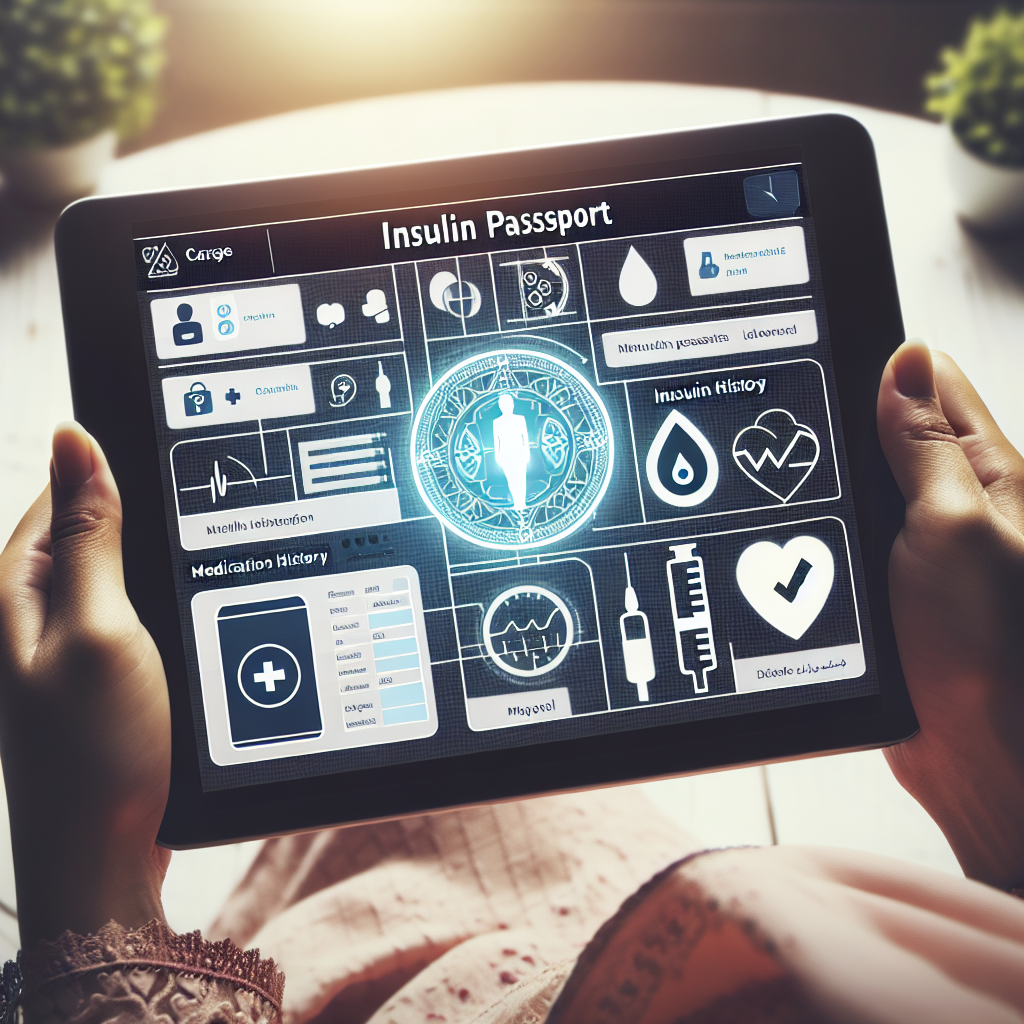Have you ever wondered what an insulin passport is and how it can benefit those living with diabetes? Well, an insulin passport is a handy document that contains all the necessary information about a person’s insulin treatment. From dosage instructions to emergency contact details, this personalized guide helps individuals easily manage their diabetes while traveling or during medical emergencies. It provides a sense of security and peace of mind, ensuring that crucial information is readily available wherever they go. With an insulin passport, managing diabetes becomes more efficient and less stressful, empowering individuals to live life to the fullest.
What is an Insulin Passport?
An insulin passport is a personal document or electronic record that contains important information about an individual’s diabetes management. It serves as a comprehensive guide for healthcare professionals, emergency responders, and individuals with diabetes themselves. The passport helps ensure that accurate and timely information related to insulin administration and diabetes treatment is readily available in case of emergencies or when seeking medical care in unfamiliar settings.
Definition and Purpose of an Insulin Passport
An insulin passport can be defined as a document or electronic record that provides crucial information about an individual’s diabetes management, specifically focusing on insulin administration and related treatment protocols. The purpose of an insulin passport is to enable individuals with diabetes to easily share essential information about their condition with healthcare providers, emergency responders, and others involved in their care. By providing accurate and up-to-date information, the passport ensures appropriate and timely responses to diabetes-related emergencies or healthcare needs.
Significance for Individuals with Diabetes
For individuals with diabetes, an insulin passport holds immense significance. Managing diabetes can be challenging, particularly when faced with changing healthcare providers, emergency situations, or travel. In such circumstances, having access to a comprehensive record of one’s insulin dosages, treatment plans, and other relevant information can greatly improve the quality of care received. It not only empowers individuals to take charge of their health but also enhances their ability to communicate effectively with healthcare professionals, leading to more personalized and improved treatments.

Components of an Insulin Passport
An insulin passport typically contains various components that provide a comprehensive overview of an individual’s diabetes management. These components may include:
-
Personal Information: This section includes the individual’s full name, date of birth, emergency contact details, and any relevant medical history or allergies.
-
Insulin Dosage and Regimen: This section outlines the type of insulin used, dosage instructions, timing of administration, and any adjustments made to the regimen over time.
-
Blood Glucose Monitoring: Here, the individual’s blood glucose monitoring routine is documented, including the frequency of testing, target range, and any specific instructions related to interpreting the results.
-
Medical Team Contacts: This section includes contact information for the individual’s primary care physician, endocrinologist, and any other healthcare providers involved in their diabetes care.
-
Other Medications: It is important to note any other medications or supplements being taken, as they can potentially interact with insulin or impact diabetes management.
How to Obtain an Insulin Passport
Obtaining an insulin passport can be a straightforward process. The first step is to consult with a healthcare provider, such as a primary care physician or endocrinologist, who specializes in diabetes management. They can guide individuals on the specific information and format necessary for their insulin passport. Depending on the individual’s preference, the passport can be created as a physical document, stored digitally on a smartphone or tablet, or even accessed through specialized mobile applications designed for diabetes management.

Benefits of Using an Insulin Passport
Using an insulin passport offers several benefits for individuals with diabetes. Firstly, it ensures that healthcare providers have access to accurate and complete information about an individual’s insulin regimen, enabling them to make more informed treatment decisions. This is particularly crucial in emergency situations when time is of the essence. Additionally, an insulin passport provides individuals with a sense of security and confidence in managing their diabetes, knowing that critical information is readily available whenever needed. It also promotes better communication and collaboration between individuals and healthcare providers, resulting in improved diabetes management overall.
Limitations and Challenges
While an insulin passport is undeniably valuable, it does have its limitations and challenges. One of the main limitations is the need for consistent updating and maintenance of the passport. As insulin dosages and treatment plans may change over time, it is important to ensure that the passport remains accurate and reflects the individual’s current diabetes management. Neglecting to update the passport may result in outdated or misleading information, potentially compromising the quality of care received. Additionally, there may be challenges in accessing the passport during emergencies if it is stored digitally and the individual’s device is not readily available or functional.

Insulin Passport vs Medical ID Bracelets
An insulin passport should not be confused with a medical ID bracelet, as they serve different purposes. While both provide vital information related to an individual’s medical condition, a medical ID bracelet focuses on providing brief, critical details that are easily noticeable and can be quickly accessed by emergency responders. On the other hand, an insulin passport offers a more comprehensive record that includes detailed information about an individual’s diabetes management. Both have their own unique advantages, and individuals with diabetes may choose to use them in combination for maximum preparedness and ease of access to critical information.
Insulin Passport and Travel
For individuals with diabetes who frequently travel, an insulin passport can be an invaluable tool. It allows individuals to have their critical diabetes management information readily available, regardless of their location. When visiting new healthcare providers or countries with different medical practices, the passport ensures that accurate information about insulin dosages, treatment plans, and other relevant details is easily shareable. This facilitates seamless continuity of care and minimizes any potential risks or misunderstandings related to diabetes management in unfamiliar settings.

Insulin Passport and Emergency Situations
In emergency situations, an insulin passport can be a lifesaver. It provides healthcare professionals and emergency responders with vital information about an individual’s diabetes management, enabling them to make well-informed decisions promptly. Whether it is a severe hypoglycemic episode or an acute complication due to hyperglycemia, the passport plays a key role in ensuring coordinated and effective emergency management. By having critical information readily available, it can potentially shorten response times, prevent unnecessary treatments, and significantly improve the overall outcome for individuals with diabetes.
Future Prospects and Advancements
As technology continues to advance, there is a growing potential for further improvements in insulin passports. The integration of electronic medical records, wearable devices, and smartphone applications can enhance the accessibility and convenience of insulin passports. For instance, the ability to synchronize an insulin passport with continuous glucose monitoring systems or insulin pumps could provide real-time data updates and streamline diabetes management further. Additionally, advancements in data security and privacy protocols will be crucial to maintain the integrity and confidentiality of insulin passport information, ensuring individuals’ trust and confidence in using such tools.
In conclusion, an insulin passport is a vital tool for individuals with diabetes, providing a comprehensive record of insulin administration and diabetes management. By enabling easy access to critical information, it empowers individuals to take control of their health and facilitates better communication with healthcare providers. While there are limitations and challenges associated with insulin passports, their benefits outweigh these concerns. With continued advancements in technology and healthcare practices, the future holds promising prospects for even more effective and accessible insulin passports.


